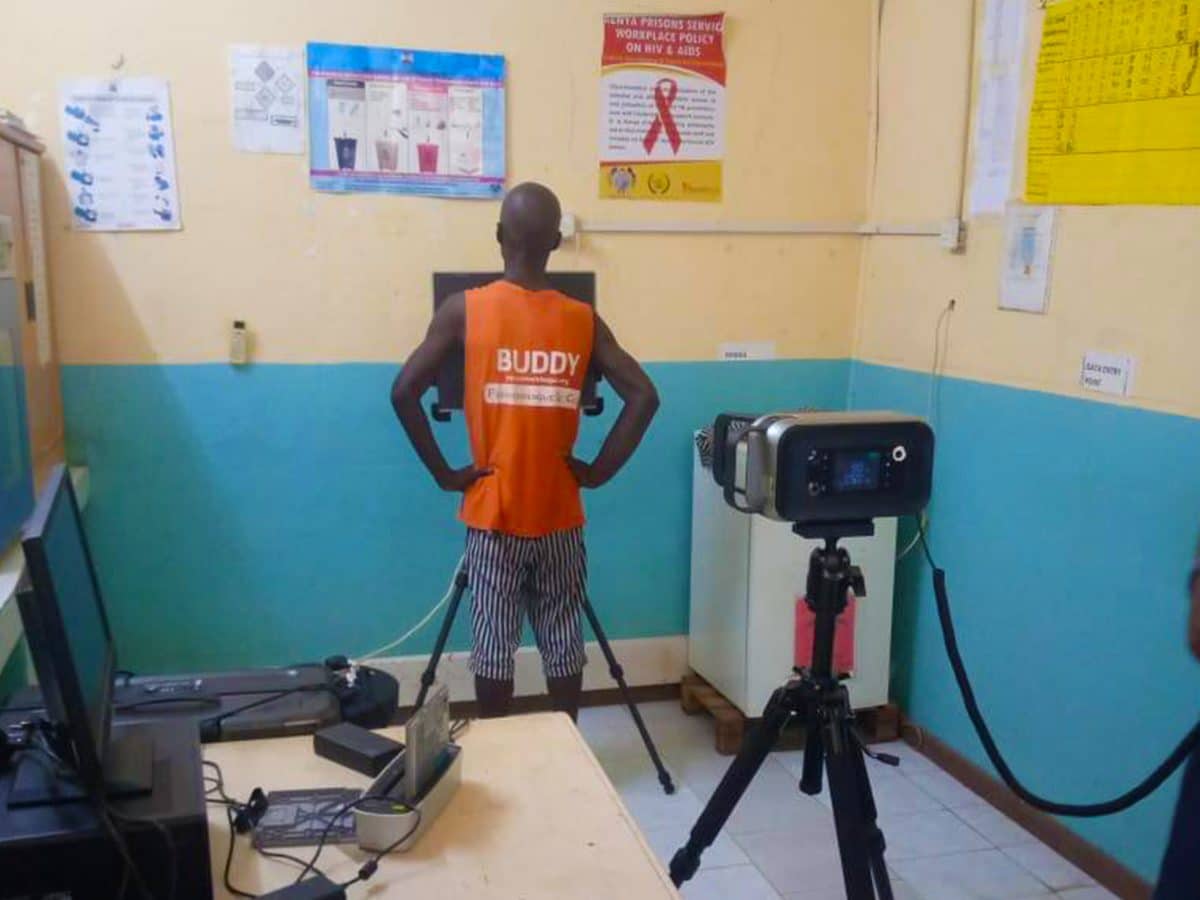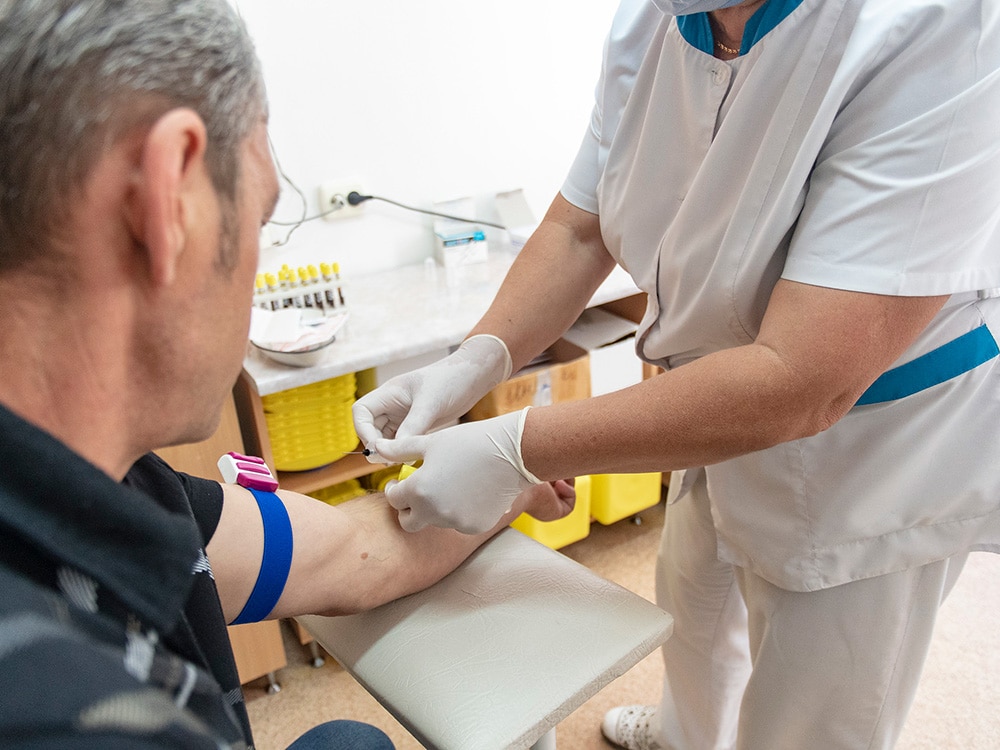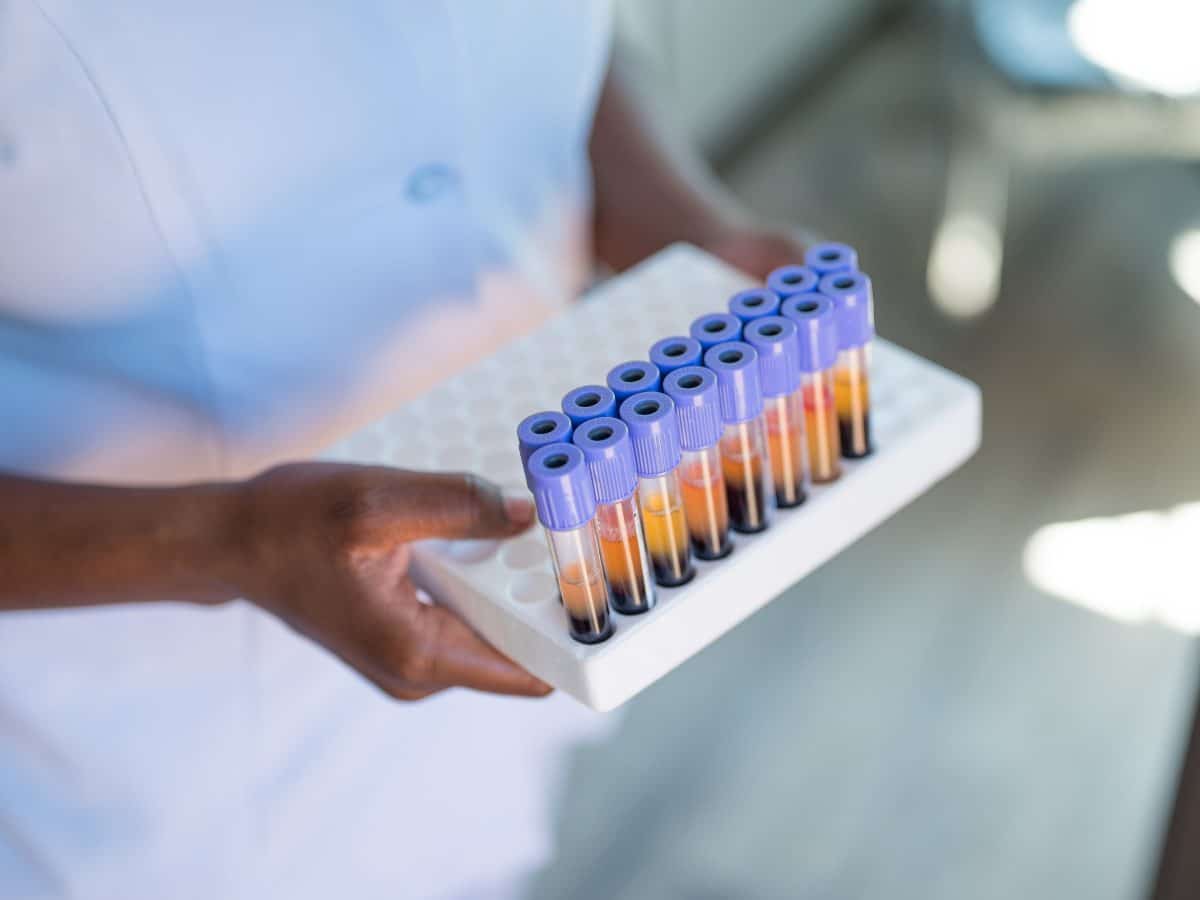Tuberculosis (TB) remains a significant health challenge in Kenya, with an estimated 31% of cases undiagnosed or unreported, according to a 2023 Kenya Ministry of Health (MOH) survey. With 52% of people diagnosed with TB having no cough and only 59% of people diagnosed having one of the four cardinal symptoms of TB, surveillance is critical to Kenya’s efforts to control and eventually eliminate the disease.
With funding from the Division of Global HIV & TB (DGHT) through the U.S. Centers for Disease Control and Prevention (CDC), ICAP, in collaboration with the Kenya MOH, is providing technical assistance support to a two-year Global Fund program to mitigate the impact of COVID-19 on other health services, particularly HIV, TB, and malaria.
ICAP has been supporting the implementation of TB screening using portable digital chest radiography with a computer-aided artificial intelligence device to detect TB among symptomatic and asymptomatic high-risk individuals, including inmates in selected prisons in Kenya.
“The battle against TB continues, and innovations in screening and detection are crucial to containing this silent disease that too often remains hidden until too late,” said Mary Mugambi, MSc, ICAP’s technical advisor in Kenya. “ICAP is working with 38 high-volume prisons within high-burden TB regions in Kenya to screen and treat people infected by TB,” she added.
A beneficiary of this screening program is Kevin (not his real name), a 45-year-old prison inmate. When Kevin was first incarcerated, his initial health assessment, which included a standard TB screening, showed no symptoms of the disease. However, months later, when ICAP technical staff joined the prison medical team to initiate advanced TB testing, an x-ray of Kevin’s chest showed a potential TB infection. This new finding led to a sputum test, which confirmed Kevin had TB, and, furthermore, that the strain was resistant to Rifampicin, one of the primary drugs used to treat the disease.
“I was stunned. I remember having TB years ago, but I thought it was long gone,” Kevin said.
His diagnosis spurred further screenings among the inmates in his prison block, where another prisoner tested positive for active pulmonary TB. Since Kevin’s diagnosis, medical staff have had him on the appropriate medication.
“Effective surveillance systems enable the timely detection of outbreaks, monitoring of disease trends, and the evaluation of the impact of interventions,” said Doris Naitore, MPH, ICAP’s country representative in Kenya. “We hope that with medical professionals using computer-aided technology in screening for pulmonary TB among people living with HIV and inmates, there will be an increase in the detection of TB in high-risk individuals in Kenya,” she said.
So far, ICAP in Kenya has completed computer-aided TB screenings in 23 out of the 38 high-volume prisons. The project began in 2023 and will run through September 2025, when ICAP in Kenya expects to complete screenings in the remaining 15 facilities.
About ICAP
A major global health organization that has been improving public health in countries around the world for two decades, ICAP works to transform the health of populations through innovation, science, and global collaboration. Based at Columbia Mailman School of Public Health, ICAP has projects in more than 40 countries, working side-by-side with ministries of health and local governmental, non-governmental, academic, and community partners to confront some of the world’s greatest health challenges. Through evidence-informed programs, meaningful research, tailored technical assistance, effective training and education programs, and rigorous surveillance to measure and evaluate the impact of public health interventions, ICAP aims to realize a global vision of healthy people, empowered communities, and thriving societies. Online at icap.columbia.edu







